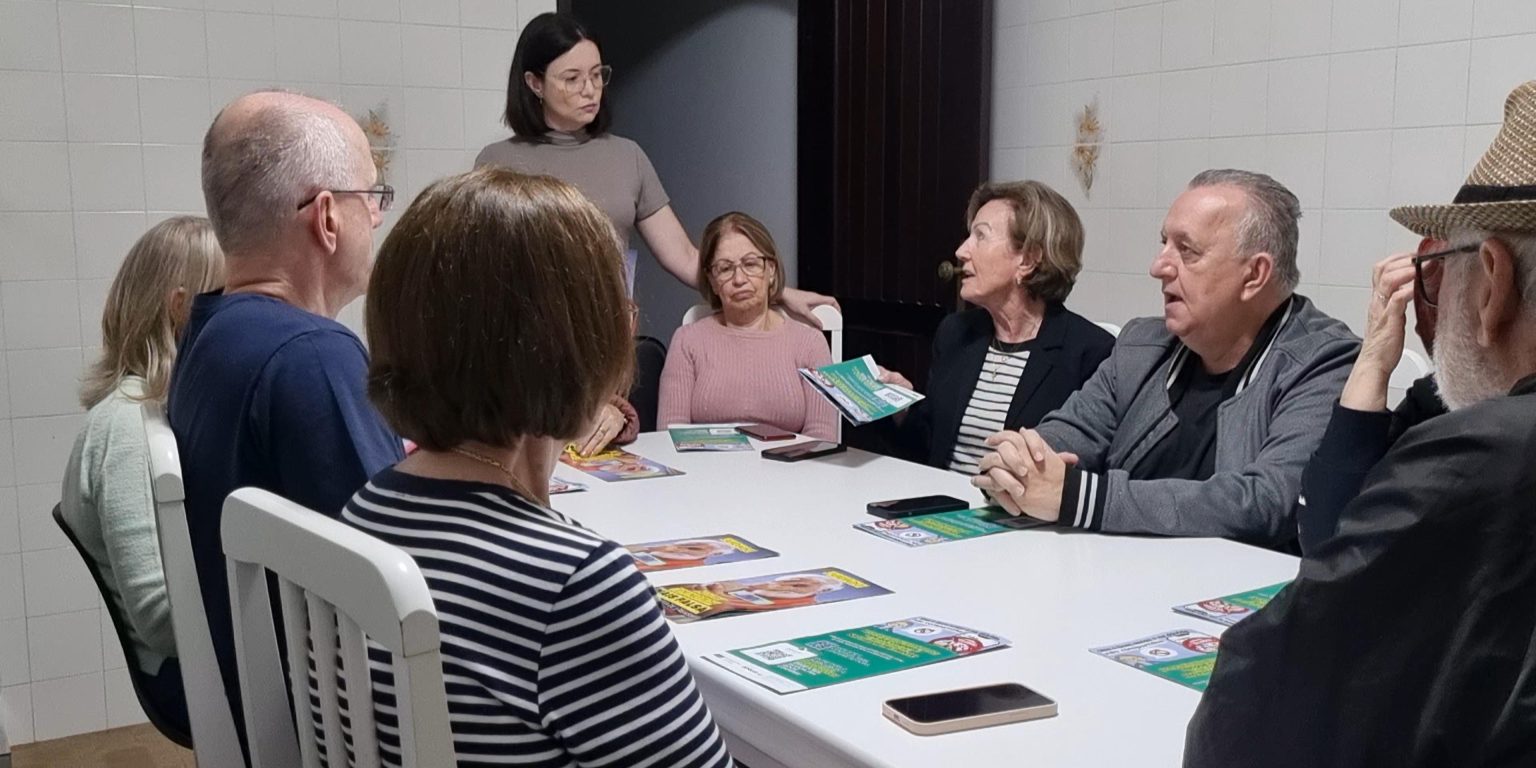Listen to the article
Journalist’s Media Literacy Initiative Empowers Brazilian Seniors to Combat Misinformation
In the coastal communities of southern Brazil, elderly residents are becoming unexpected warriors in the fight against digital misinformation, thanks to an innovative approach by local journalist Talita Rosa.
Rosa, who first encountered the concept of “fake news” in 2017, has transformed her early interest in fact-checking into a grassroots movement that meets vulnerable populations where they are—literally and digitally.
“I realized that countering misinformation would take more than just journalists; it demanded a fundamental shift in how communities understand and share information,” Rosa explained after completing an intensive training program through the International Center for Journalists’ Disarming Disinformation initiative.
The program, supported by the Scripps Howard Foundation and delivered in partnership with the Poynter Institute’s MediaWise, has trained 27 media literacy educators who have reached over 3,200 people globally. For Rosa, the training reinforced a crucial insight: effective media literacy education must prioritize audience needs over preconceived educational frameworks.
This principle guided Rosa’s approach when she addressed her community’s Municipal Council for the Rights of the Elderly earlier this year, seeking support for a practical media literacy program. Rather than teaching complex fact-checking methodologies, she proposed showing seniors how to use the artificial intelligence verification tool built directly into WhatsApp—the platform where many of them consume and share news.
“The exchange of experiences broadened my understanding of the realities and perspectives of other contexts,” Rosa noted. “This was especially relevant in countries in the global south, where local peculiarities such as low educational levels and limited internet access require specific strategies sensitive to each community.”
After gaining unanimous support from the Municipal Council, Rosa partnered with senior organizations to host eight workshop sessions, reaching more than 150 participants who might otherwise never have access to media literacy training.
Her preparation was meticulous. Before each session, Rosa visited the community and distributed questionnaires to understand participants’ digital skills and concerns. This allowed her to tailor content specifically for each group.
Recognizing that many elderly participants were not tech-savvy and primarily consumed video and image content through messaging apps, Rosa adjusted traditional media literacy techniques. Instead of teaching lateral reading—a skill that requires high literacy and comfort with multiple browser tabs—she focused on visual and audio clues for spotting deception.
The workshops began by discussing everyday situations where seniors might be deceived, from retirement and financial scams to health misinformation. Rosa then connected these scenarios to their media consumption, comparing the identification of reliable news to recognizing authentic banknotes.
Her timing proved fortuitous. As WhatsApp launched a built-in AI verification tool, Rosa incorporated it into her workshops as an accessible alternative to more complex verification techniques. This practical approach resonated with participants, many of whom had limited digital skills but were active on messaging platforms.
Perhaps the most enduring outcome is “Conta Outra” (loosely translated as “Tell Me Another” or “Nice Try”), a WhatsApp group where workshop participants now share questionable messages, verify information together, and warn each other about potential scams. The group has grown to 100 members who support each other in a judgment-free environment.
“They showed an openness to learning, which was very contagious,” Rosa said. “They valued the activity as a learning experience and expressed concern once they understood the risks they are exposed to via WhatsApp.”
Workshop participant feedback confirmed the program’s impact. One attendee noted that when his son previously corrected him about misinformation, he dismissed it as political bias. After the workshop, he can now recognize “signs of manipulation” himself.
The initiative has also strengthened trust between community members and local media. As part of some workshops, Rosa took participants to local newsrooms, where they observed journalists creating news stories—a behind-the-scenes experience that helped demystify journalism and build media trust.
Building on this success, Rosa has begun a master’s research project investigating how information design can make news and fact checks more accessible to Brazilians. She continues leading workshops for seniors while expanding her focus to include high school students, with a particular emphasis on combating climate misinformation related to ocean protection.
As digital misinformation continues to challenge communities worldwide, Rosa’s approach demonstrates how effective media literacy education must be tailored to specific audiences—meeting people where they are with tools they can actually use.
Verify This Yourself
Use these professional tools to fact-check and investigate claims independently
Reverse Image Search
Check if this image has been used elsewhere or in different contexts
Ask Our AI About This Claim
Get instant answers with web-powered AI analysis
Related Fact-Checks
See what other fact-checkers have said about similar claims
Want More Verification Tools?
Access our full suite of professional disinformation monitoring and investigation tools




7 Comments
Empowering seniors to combat misinformation is a vital initiative. Grassroots media literacy programs like this one can make a real difference in vulnerable communities.
Combating misinformation is an ongoing battle, but grassroots efforts like this one demonstrate how we can make progress at the community level. Inspiring to see the real-world impact.
This is an inspiring story. Journalists partnering with organizations to provide media literacy training is an important step in the fight against digital misinformation.
Absolutely. Reaching at-risk populations directly and equipping them with the tools to identify and counter false information is crucial.
This is a great example of how media literacy initiatives can empower vulnerable populations. Kudos to the journalist and organizations involved in this impactful project.
I’m curious to learn more about the specific training program and approach that has proven effective in this community. Addressing misinformation among seniors is a nuanced challenge.
The emphasis on audience needs over predetermined frameworks is an insightful approach. Tailoring media literacy education to the target group is key to driving real impact.